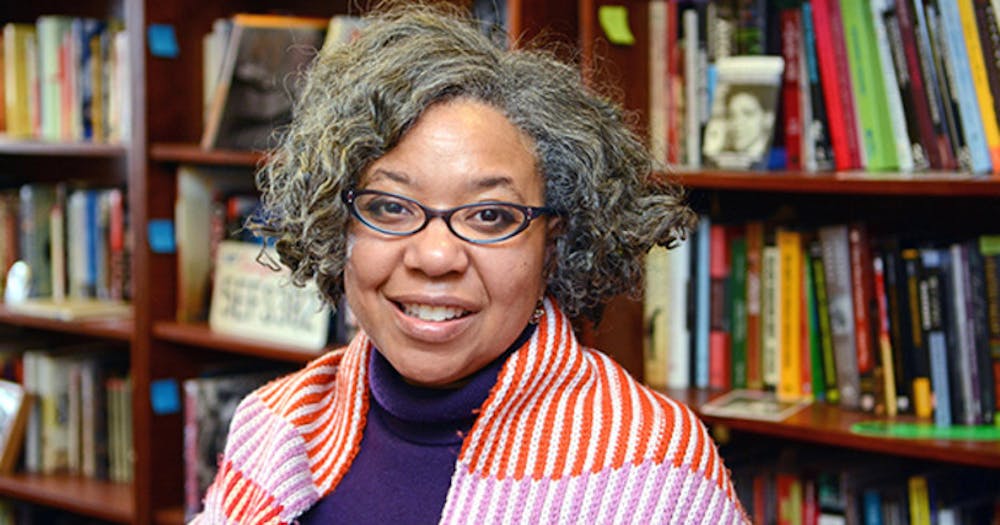Over the joyous, somber and evocative melodies of Black musicians, Daphne Brooks traced the power of Black music throughout the ongoing battle for justice during the inaugural lecture for the Black Studies program last Thursday. An African American Studies professor at Yale University, Brooks delivered a lecture titled “Breonna’s Song: Protest Music Epistemologies of the Right Now.”
Daniel Silva, director of Middlebury’s Black Studies program, introduced the long-awaited talk over Zoom last Thursday. The event was originally planned for last semester, but was canceled due to the campus’s closure.
Brooks explained the role of protest music in the afterlife of slavery and connected the death of Breonna Taylor to the cycle of tragedy and conditions of the unfree in Frederick Douglass’s “Narrative of the Life.” Brooks labeled the current state of the world “unlivable.”
“Think about the difference that music and sound make in allowing us to make sense of this history — to make sense of the social, political and cultural complexities of the world in which we find ourselves,” Brooks said.
She implores her student to hear and feel “the crushing brutality of Black life under assault” and “the radical decision to pursue a free life.”
Brooks explained that this past week, an opportunity for justice was lost when a grand jury failed to charge two of the officers involved in the murder of Breonna Taylor — only charging the third with reckless endangerment. She described how the historical systemic violence, racism and brutality described by Douglass intertwines with the current world and Taylor’s own inability to have sovereignty over her body.
“[O]ne of our many tasks as scholars of popular music culture [is to] embrace the fact that we [are] the ones who are left behind to say the names, to take to the streets and to risk our lives in this moment of emergency, which is also the moment of our revolutionary re-emergence,” Brooks said.
Brooks explored what the music of the Black Lives Matter movement sounds like, referring to artists such as Beyoncé, Eryka Badu, Prince, Langston Hughes and more. Analyzing the structure and techniques employed in the music, Brooks illuminated universal themes throughout the songs of protest such as second-class citizenship, white interiority and the complexities of Black experience.
She recounted listening to George Benson’s 1976 “The Masquerade” at backyard barbeques and realizing harsh truths about the horrors of Southern Jim Crow.
To end her lecture, Brooks invited the audience to think with her about the future. Songs of protest will “act like a chisel against the cement wall of absolute power that feels particularly impenetrable,” Brooks said. Musicians serve as conduits of the Black community, creating sound that speaks to the moment in time, connecting to a range of archives in Black history.
Silva described Brooks’ lecture as the perfect way to introduce the major to the Middlebury community and beyond, showcasing an interdisciplinary rendering of Black Studies.
“On the surface, it is about music, but it is also about so much more. It’s about cultural production and about knowledge formations that come about through the artistry but also the critical inquiry into said artistry by those who are researching and studying,” Silva said.
Kayla Richards ’22 attended the lecture and expressed a newfound perspective on protest music and intersections of gender, race and class in America after listening to Brooks speak. Richards sees the introduction of the Black Studies program in 2019 as long overdue and called it “appalling and abysmal.” She asked Middlebury to make an effort in hiring Black professors and those specializing in Black studies.
One student will be graduating with a Black Studies major this year, becoming the first Black Studies major to graduate from Middlebury. This fall, there are five courses offered in the major, and 175 students are enrolled across these courses. Silva hopes the program will continue to grow and expand and allow the department to prioritize student and faculty work.
‘A chisel against the cement wall of absolute power’: Black Studies program brings Daphne Brooks to talk protest music in inaugural lecture

Comments



